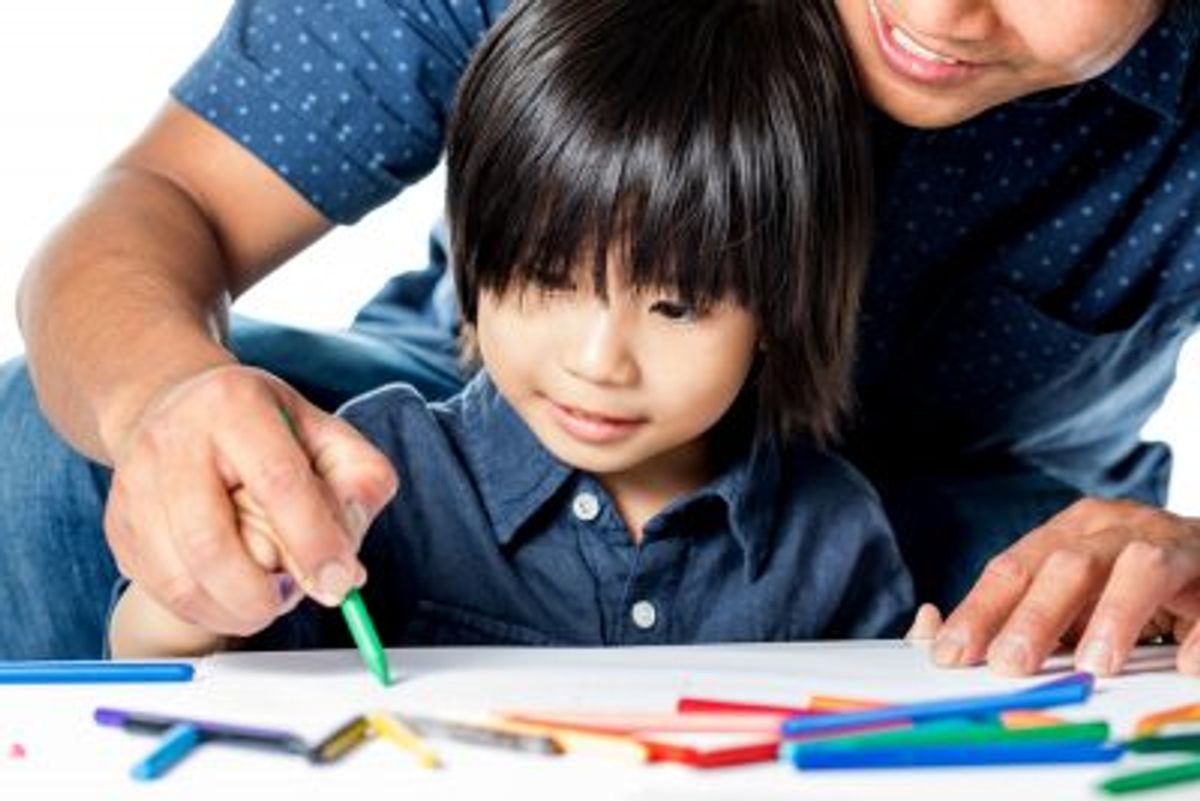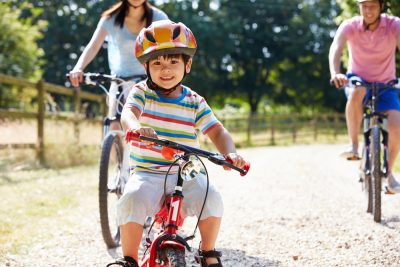
The ability to focus can determine your life’s direction and even your ability to accomplish goals or develop new habits. Early in life most children have shorter attention spans than adults. Some children, however, have far more problems focusing and staying on task than others. This lack of focus may prevent them from realizing their full potential later in life. A healthy attention span is often necessary not only for academic success but also for creative and athletic endeavors as well.
The good news is the gift of focus can be cultivated early in life through enriching the child’s environment with the right sounds at the right time and by choosing activities at home which encourage focus and attention.
Age Appropriate Puzzles
First, putting together puzzles helps to boost a child’s concentration as he or she develops. When selecting them be sure to pick age appropriate choices. For children under the age of two, offer wooden knobbed puzzles that are outlines of simple shapes and fit easily into board cutouts. Next, your child can move on to puzzles with more complex images. Cartoon characters, musical instruments and transportation illustrations are always a hit with toddlers. Allow them to choose the puzzles they like. Doing so can increase the amount of time a puzzle receives, heightening concentration. When children work on puzzles they enjoy, they often will develop strategies to finish the puzzle efficiently–doing all the edge pieces first, for instance, or separating the pieces according to colors.
Physical Activities
 Next, increasing a child’s fitness level can do wonders for their attention span. A large randomized controlled trial in the US examined the effects of daily afterschool sports activities over a school year. As the children got in better shape, they also became more proficient at multitasking, ignoring distractions and retaining information.
Next, increasing a child’s fitness level can do wonders for their attention span. A large randomized controlled trial in the US examined the effects of daily afterschool sports activities over a school year. As the children got in better shape, they also became more proficient at multitasking, ignoring distractions and retaining information.
Furthermore, when physical activity is used as a break from academic learning time this can result in improved on-task behaviors, healthier attention spans, and enhanced academic performance.
Parents can play a pivotal role encouraging their children to become physically active by helping them choose activities that get their heart rate up. Below are some ideas to consider:
- Dancing: ballet, hip hop, modern, tap
- Martial arts: boxing, karate, kick boxing, taekwondo
- Racket sports: badminton, tennis, ping pong, squash
- Recess games: dodge ball , playing tag, skipping, red rover
- Skating: skateboarding, in-line skating
- Team sports: basketball, football, hockey, soccer
Foods and Supplements
Often overlooked, over indulging in foods like bacon, popcorn and soda and junk food with little nutritional density can affect a child’s ability to focus and cause brain fog. Incorporating foods that naturally contain Docosahexaenoic acid (DHA) such as fatty fish (i.e. sardines, salmon and mackerel) in your child’s diet can has been proven to improve concentration naturally. If your child is not a big fan of fish, DHA fish oil supplements are widely available for children.
Equally as dangerous, a magnesium deficiency can bring about decreased attention span and mental confusion. This much need mineral calms the brain down and helps children to focus. Foods that are high in magnesium include dark leafy greens, quinoa, cashews and walnuts.
Foods containing B vitamins can improve alertness in children. Vitamin B12 deficiency may cause low energy, which in turn lessens the ability to focus. And so, be sure that your child is getting adequate amounts of healthy animal proteins, such as grass-fed beef and lamb loaded with B12. Choline, another B vitamin, helps with development of memory stem cells and is readily available in eggs.
A study published in Magnesium Research in 2006 found that giving ADHD-diagnosed children a cocktail of magnesium and vitamin B6 significantly improved inattentiveness. B6 is found in foods like avocados, pistachios, turkey, meats and whole grains.
Remove Distractions
No child should be living like a scattered grad student surrounded by clutter. Keeping an orderly living space creates an environment that is structured and cultivates a child’s ability to increase his or her attention span and focus on one activity at a time. It is, therefore, important to not only round up the toys, clothes, crafts etc at the end of the day, but to teach your child to put away things once finished. This also includes putting away all the screens—television, smart phones, tablet computers and especially game consoles.
While there are clear benefits that come with using electronic media, over-exposure can have a negative impact on attention. In a 2010 study, the Kaiser Family Foundation found that the children (ages 8-18), outside of school time, spend practically every moment of the day using electronic devices. Whatever happened to ‘go and play outside’? If you want to save your child from becoming a disappointing statistic, set some sensible daily time limits. Once your child reaches the limit, suggest they go outside and spend time in nature. Last Child in the Woods is a great book for parents to read. It deals with children growing up in a culture bombarded with electronic media, disconnected from nature. The book makes a compelling case for children playing in the great outdoors.
A Good Night’s Sleep
Like adults, children need sleep to enable their minds to reboot and focus. Unlike adults, a drowsy child can’t wind down quickly. In fact, in children sleepiness can resemble ADHD symptoms. They behave as if they’re not exhausted at all, resisting bedtime and becoming increasingly hyper as the evening progresses. This all too familiar drama can happen simply because the child is overtired. Children who sleep less than ten hours per night before age three are more likely to be easily distracted and are three times more prone to developing hyperactivity and impulsivity issues by age six than those who get just 30 minutes more of extra sleep. See the chart below to learn how many hours of sleep your child needs.
Baby and Children Sleep Chart
- 0-4 months. Total Sleep: 16-18 hours. Nighttime Sleep: 8-9 hours.
- 5-12 months. Total Sleep: 12-16 hours. Nighttime Sleep: 9-10 hours.
- 1-2 years. Total Sleep: 11-14 hours. Nighttime Sleep: 11 hours.
- 3-5 years. Total Sleep: 10-13 hours. Nighttime Sleep: 10-13 hours.
- 6-12 years. Total Sleep: 9-12 hours.
#babyplus #child development #attentionspan #focus #childbevahior #parenting
